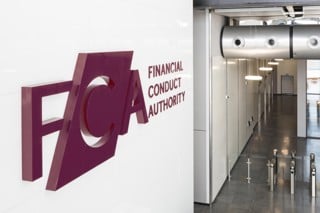Motor retailers have just weeks to get their house in order before clearer rules referring to finance commission disclosure come into effect.
By January 28, any dealer involved in brokering motor finance must have given “prominence” to the fact that they earn income from finance referrals. Upon
knowing this, it is possible a customer might choose to make alternative finance arrangements.
After the January date, retailers must include a disclosure statement in financial promotions or offers to customers.
One consultant told AM: “The Financial Conduct Authority (FCA) has assured the motor finance industry that this change to the rulebook is minor. Strictly speaking, this is true.
"However, that minor change is based on the assumption that all brokers were already being transparent about the existence of commission from their
finance sales.”
The amendment to the Consumer Credit sourcebook (CONC) is a bit of a long-winded one. It states that a motor retailer acting as a finance broker “should, in a financial promotion or in a communication with a customer, indicate to the customer in a prominent way the existence and nature of any financial arrangements with a lender that might impact upon the firm’s impartiality in promoting or recommending a credit product, which might, if disclosed by the firm to the customer, affect the customer’s transactional decision in relation to the credit product”.
It also now highlights that, when preparing a finance application, a dealer must “prominently disclose to a customer in good time before a credit agreement or a consumer hire agreement is entered into” the existence and nature of any commission/fee/other remuneration they’ll get from the lender or a third party “where the existence or amount of the payment could potentially have a material impact” on the customer’s decision to sign the agreement.
The same also applies if the FCA could question the impartiality of the dealer in recommending the agreement.
 Increasing the likelihood that customers know about the existence of commission payments “can help consumers to make better informed decisions, consider alternative options, find a cheaper deal or negotiate on the finance or other price or ancillary elements of the deal or transaction”, said the FCA.
Increasing the likelihood that customers know about the existence of commission payments “can help consumers to make better informed decisions, consider alternative options, find a cheaper deal or negotiate on the finance or other price or ancillary elements of the deal or transaction”, said the FCA.
The FCA’s own proposal, formulated after it mystery-shopped the industry in 2018, stated: “We found that only a small number of brokers in our sample disclosed to the customer that a commission may be received for arranging finance. Where disclosures were made, they were often not prominent. We believe this is partly because our rules could be clearer.”
Its exercise found one of 37 franchised dealers, four of 60 independent dealers, two of 14 car supermarkets and four of 11 online brokers disclosed to the mystery shopper that commission may be earned for arranging finance.
Andrew Barber, financial regulation expert at law firm Pinsent Masons, said the FCA had intended to make an immediate change to commission disclosure rules. However, following consultations, it deferred this to the same date as the ban on discretionary commission models linked to the interest rate.
Barber said although dealers are managing the impact of lockdowns and changes to systems and processes, they “should not sit on their hands”.
He added: “Firms need to start working up and implementing their plans quickly.”
James Tew, chief executive at fintech firm iVendi, agreed there is no time to lose. “Increasing the prominence of the availability of commission will most likely require changes to the online finance journey presented by retailers using products such as ours,” he said.
At MotoNovo, chief executive Mark Standish said: “The FCA’s changes to dealer finance will be a dominant theme for motor retailers as we move towards the January deadline.”
And its deputy chief executive Karl Werner added that the January changes, including the ban on discretionary commission, were an opportunity to show the public the industry is committed to business cultures centred on doing the right thing for customers.
“How we react to the test of embracing not just the letter, but the spirit, of the FCA’s policy statement stands to have a big part in the future of dealer finance,” Werner added.
NEW REGIME MAKES SENIOR MANAGERS PERSONALLY ACCOUNTABLE
The Financial Conduct Authority has given dealers a few extra weeks to get to grips with the Senior Manager and Certification Regime (SM&CR), which demands greater individual accountability for compliance in the sale of regulated finance and insurance.
SM&CR was due to come into law on December 9, but, following the turmoil of the coronavirus pandemic, the regulator has delayed this until March 31.
Dealers should still be tackling this now, however. “Having held SM&CR responsibility at a major dealer group, I’m very aware that creating not only the processes and control necessary for compliance but also the required cultural focus on delivering good customer outcomes, is unlikely to be a quick fix if it has not already started,” said Tara Williams, managing director of i-Comply and a former head of compliance at AM100 dealer Group 1 Automotive UK.
SM&CR is to be applied at legal entity level, except for appointed representatives.
The FCA head of conduct specialists, in its supervision division, David Blunt, said the three main components of SM&CR are certification, regulatory references, and conduct rules.
• CERTIFICATION – any employee responsible for dealer finance and insurance, including sales heads and dealer principals, in a role which could cause harm to consumers, markets or the firm itself, should be assessed at least annually to see whether they are fit and proper for their role. Senior managers will have oversight of this regime and must be confident the arrangements to assess competency are robust.
• REGULATORY REFERENCES – ensuring firms get the information they need from previous employers of new hires so they can make the right decisions about those hires going into these important functions. This is to stop people with poor conduct histories simply moving from firm to firm.
• CONDUCT RULES – Blunt said these are about acting with integrity, due skill, care and diligence, and complying with standards of market conduct. It’s about paying due regard to the interests of customers and treating them fairly, plus informing the regulator of things it should be made aware of, such as any individual’s breach of the conduct rules and any disciplinary action against them.
Breaches of the SM&CR could lead to significant personal fines and custodial sentences are possible for serious breaches.
Spencer Halil, director of Alphera Financial Services, suggested dealers should enrol employees in the IMI’s F&I accreditation scheme as a means of ensuring they stay competent.
He added: “Senior managers need to be fully informed as the FCA will expect them to be your front line. What are you doing to make sure senior managers will have kept their knowledge of compliance up-to-date?”





















Login to comment
Comments
No comments have been made yet.